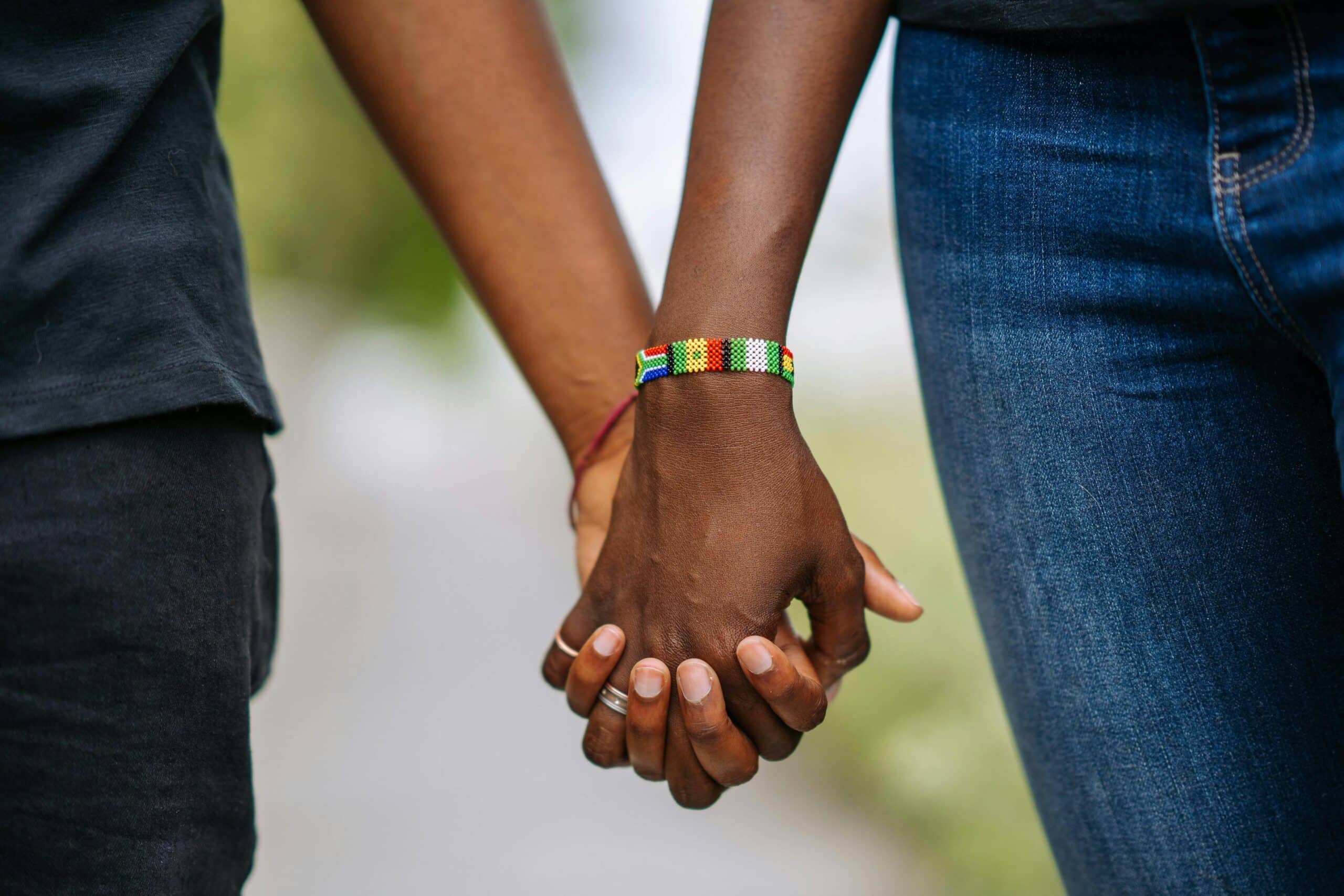How to Come Out: Tips to Remember

Please remember that every journey will be different and that your choices in the coming out process are entirely valid. Because of that, there is no comprehensive guide on how to come out. Instead, we offer these tips to help protect your well-being as you share this information with your friends and family members.
You Don’t Have to Come Out Until You are Ready
Nobody should feel forced to come out. You aren’t obligated to share this part of yourself with anyone if you think they will be unsupportive or toxic. Also, you shouldn’t feel pressured to come out simply because people you know have taken that step. It is completely up to you when you come out, and with whom you share your whole self.
Some people share their sexual orientation openly from a very young age. Dancer and actor JoJo Siwa came out by posting a picture of herself in a “Best Gay Cousin” t-shirt. She simply tweeted, “My cousin got me a new shirt”, but the message was clear.
My cousin got me a new shirt pic.twitter.com/DuHhgRto7b
— JoJo Siwa!?❤️? (@itsjojosiwa) January 22, 2021
Others choose not to come out as gay until much later in life. There is no right or wrong point in time to come out. This is something that should happen when you are ready. It’s common for members of the LGBTQ community to share their same sexual orientation with trusted family members and friends, but keep this information from others.
Who knows where you might find inspiration for coming out. Actor Kevin McHale was inspired to come out by an Ariana Grande song. He said, “#NoTearsLeftToCry is gayer than me and I ACCEPT. Ty @ArianaGrande,”.
#NoTearsLeftToCry is gayer than me and I ACCEPT. Ty @ArianaGrande.
— Kevin McHale (@druidDUDE) April 20, 2018
Common Reasons for Coming Out
If you are ready to come out to friends and family, that’s amazing. So many people feel a sense of relief and authenticity the moment they share their news. Here are some of the reasons that queer people give for taking this step:
- They want to begin dating and using gay dating apps openly
- It empowers them to take ownership of their identity
- To stop the spread of untrue and unkind rumors
- As a way to stand with other members of the LGBTQ community
- To seek support from friends and other loved ones
Some of these may resonate with you, or you may have reasons of your very own for coming out right now.
Common Reasons for Delaying Coming Out
It’s okay to decide that you aren’t ready to reveal your gender identity or sexual orientation. You can be true to yourself, and decide not to share this information at the same time. You may decide to delay coming out if you:
- Fear that you will be kicked out of your home
- Risk facing violence or discrimination
- Are still learning about yourself and coming to terms with your identity
- Fear that your personal information will be shared outside of your safe circle
- Are part of a community that doesn’t support people who aren’t CIS Het
Your physical and mental well-being is very important. It’s okay if you decide to wait.
It Helps to Have a Support System in Place
You might find that coming out is much less overwhelming if you have at least one person on your side. They can be a source of support as you share this important information about yourself and can act as a bit of buffer between you and other people.
Hopefully, you have a close friend or family member who is supportive of you no matter what. If that isn’t the case, don’t lose hope. There are support groups in nearly every community. If you are a student, there may be a support group that meets on campus. If not, you can get help connecting with queer-friendly places and supportive people.
You can find quite a bit of help by simply Googling “LGBTQ support and resources in my city”. Please be safe if you do this. There are also online groups to help connect you with supportive community members from around the world. Even reaching out to gay chat groups can be helpful. You will build social connections with other gay and trans folx. This can help you feel less isolated, and give you a place to share your experiences.
Be Prepared for Different Reactions
What will your friends and family say when you tell them that you are gay or trans? There’s just no way to know for sure. That’s why it’s so important to be prepared for some unexpected responses. Here are some of the reactions you can expect.
People may be More or Less Supportive than You Expect
You deserve love and support during this process. Unfortunately, not everyone will be capable of providing that to you. To complicate matters even more you may be surprised at who is supportive, and who is not.
For example, one person in your family may express very progressive views when speaking about the gay and trans community as a whole. However, they may be much less accepting if they are confronted with a person in their own life being gay. Other people may seem less than accepting but are quickly able to accept and embrace a gay family member or friend.
Sense8 actor Brian J. Smith was relieved and pleasantly surprised when he came out to his family. He spoke about his experience in an interview, “I was surprised. When I came out to my parents they were wonderful. They said they were just waiting for me to say something. They were a lot more advanced than I gave them credit for.”
Some Loved Ones Might Feel Betrayed
“Why didn’t you tell me before?”, “I can’t believe you’ve been hiding things from me!”, “You must not trust me.”, “You should have been able to talk to me about this.” You might hear these things from some friends and family members. If so, you won’t be the first person to get this reaction.
Sometimes, people react this way out of guilt. They feel as if they have done something wrong to have caused you to keep a secret for so long. Sadly, some bigoted people also have these angry, emotionally charged reactions. In any case, remember that coming out is about you, and you are not responsible for anybody else’s feelings about your journey.
There will be People who Don’t Know How to React
Sometimes, when you introduce people to your true self, they simply don’t know what to say or do. This doesn’t mean they don’t love or accept you. Often, they worry about reacting in a way that is offensive or upsetting. So, they say nothing, or they say something awkward or offensive.
You Might Inspire Another Person to Come Out
When you come out, you just might become somebody’s safe person. It’s not uncommon for there to be more than one person who is a member of the LGBTQ community in a family or circle of friends. Don’t be surprised if a loved one approaches you about having similar experiences and feelings.
Some people, like Lil Nas X, have been able to embrace their inspirational roles. The superstar musician says, “I feel like I’m opening the doors for more people. That they feel more comfortable being out. Especially in the hip-hop community.”
How to Navigate Reactions in a Safe and Healthy Way
Before you share this important part of your life, it’s a good idea to have some responses in mind. You might even talk through certain scenarios with someone you know will support you.
What should you say if people don’t know what to say?
Queer people often come out because they are seeking assurance of love and support. It’s okay to express that directly. Most people appreciate that directness. For example, you might say “I’ve come to realize that I’m non-binary. It would really help me to know that you still love and support me.”
What if you get a negative reaction when you share your identity or same sexual orientation?
Sadly, not everyone can be loving or even respectful when they receive this news. You can’t tell people how to feel, but you can set clear boundaries. You have the right not to be verbally abused, shamed, or threatened. Please know that you can end conversations or leave a situation. This is true even with your parents or someone you view as a friend.
If you think you have any reason to be afraid for your safety, please take the following steps:
- Consider whether you need to share this information with the people involved at all
- Have the conversation in a public place
- Ensure that you are able to leave
- Let a friend know what is going on
- Have someone who is supportive of the gay community present
By taking these steps, you are likely to avoid an escalating confrontation, and escape to safety if you must.
How should you answer questions after telling people you are gay?
Not everyone has similar experiences and education on the subjects of gender and sexual orientation. Your friends, parents, and other relatives may have a lot of questions after hearing your news.
Before you react, remember that it isn’t your responsibility to educate people, answer intrusive questions, or do anything that you don’t feel comfortable with. On the other hand, most people ask questions out of genuine curiosity.
If you feel okay with it, you can help educate them, and even help them learn queer affirming language. Actress Mae Whitman used her platform on Twitter to educate people about pansexuality, “I know ppl might be unfamiliar with what pansexual means; for me, it means I know I can fall in love with people of all genders. This is the word that fits me best and I’m proud+happy to be part of the Bi+ community .”
If you aren’t ready for this, it is a good idea to offer some helpful resources. PFLAG and the Trevor Project are both amazing resources for parents and others who want to educate themselves and support loved ones.
Be Sensitive When Coming Out to a Partner
What do you do when it’s time to come out to your partner? You may feel vulnerable, fear hurting them, and worry about their reaction. Before you talk to them, determine whether you feel safe around them. This can help you determine how you will handle this conversation.
If you do feel safe, try to have the conversation in person. Although, if you are struggling to talk, it’s okay to write something down for your partner to read.
Recognize that there probably isn’t a perfect time to have this conversation, but you can still be sensitive about your timing. Don’t make your announcement in a moment of anger, or right before you have to go out with friends.
Be as reassuring as possible, but honest as well. Be truthful when you answer questions such as, “Does this mean you are leaving me for someone with a different gender identity?” or “How long have you known you were gay?”
If you are worried that your partner will react in a way that is unsafe towards you or anyone in your household, please be careful. Your safety is more important than their right to any information. Focus on the process of finding a safe space and supportive people.
Start with Safe People and Places
It’s okay to share your gay or bi coming out story in phases. You don’t have to come out to everybody all at once. Go at your own pace. Things will happen when you are ready for them.
You Don’t Have to Tell Family Members First
It may be helpful, to begin with, a person you trust and know is supportive of you. Once they know, they can be a source of support as you share your identity with others. Just remember that this process belongs to you. It’s okay if it takes a while to share with your parents and family, but you find it easy to speak to your friends. This is about being accepted, and getting the support you deserve.
You Aren’t Obligated to Engage Face to Face
Some people prefer to have these conversations in person. They may even be offended if you decide not to tell them in person. You can acknowledge their feelings about this while not taking on responsibility for them, or doing anything that will make this process uncomfortable for you. You get to define the terms of coming out. Simply let them know that you understand that they prefer this happens differently, but you are doing what works best for you.
To help prepare for this, try writing your feelings down. Share the story of realizing the truth about your identity or sexuality, and detail what others can do to support you.
Give People Time to Process
You are sharing big news about your identity. Even the people who are most likely to advocate for you in the future might need some time to process what you’ve told them. Their hesitance to react doesn’t necessarily mean they don’t care. Make a point of letting them know that they don’t need to respond immediately.
Consider Your Privacy
Just because you feel safe telling some people that you are gay, that doesn’t obligate you to tell the world. Part of accepting your identity is respecting your request for privacy and discretion.
Keep this in mind when you decide whether you want to tell different people about your sexuality. If you can’t trust them not to out your identity without your permission, then you should consider putting them on an information diet. Once they have shown they have accepted your right to privacy you can fill them in.
Gender Identity and Sexual Orientation on Social
It’s impossible to address the issue of your privacy without discussing social media. This is something you will want to consider before you decide what you will share, and how you will ask others to address your orientation on social media. Remember that you can ask people not to Facebook share your news, but you can’t control their behavior.
Be aware of your own behavior on social media as well. The paradox is that there are amazing communities of gay and trans people online. Unfortunately, all it takes is one person to share information and out somebody against their will. Be careful where you post, and listen to community guidelines when you are invited into queer spaces online.
Also, be aware that your Twitter share and Pinterest share histories could reveal more about your identity than you intend. For example, if someone suspects you are LGBTQ, and you share pictures of yourself at a gay nightclub on Instagram, they might take that as confirmation.
Coming Out Via Online Post
What if you want to come out online? This isn’t unheard of and isn’t inherently wrong as long as you follow some guidelines. First, consider using a more personal way to share your story with trusted members of your inner circle. Also, please know that by coming out on any public platform you will be out to everyone, including people you meet in the future.
This isn’t to fearmonger. Some people find coming out this way to be a very positive experience. It allows them to share their story without being disrupted, and to offer informative resources to those with questions.
Actor Elliot Page came out as trans on Instagram and Twitter. His posts included these inspirational words, “I love that I am trans. And I love that I am queer. And the more I hold myself close and fully embrace who I am, the more I dream, the more my heart grows and the more I thrive.”
— Elliot Page (@TheElliotPage) December 1, 2020
Being Out at School and Work
Should you come out at school or work? There are some benefits to this. As a student, you might find peers who are willing to provide the support you need. It can be easier to be out at work if that means you don’t have to hide information about your partners and home life.
This does assume that your school and work environment is LGBTQ-affirming. If it isn’t, then you may decide not to share that part of your life.
Coming Out as a Lifelong Process
Coming out is often portrayed as a single, life event. The reality is that you will come out multiple times over the years. Think about it. Every time you meet a new person and they become a part of your life, you have to decide whether to tell them about your sexual orientation.
Final Thoughts: Living as Your True Self
There’s no “right way” to come out of the closet, and certainly no timeline you need to follow. Think of these tips as guidelines intended to empower you and prioritize your safety. You deserve the support of a strong community of friends and family.


